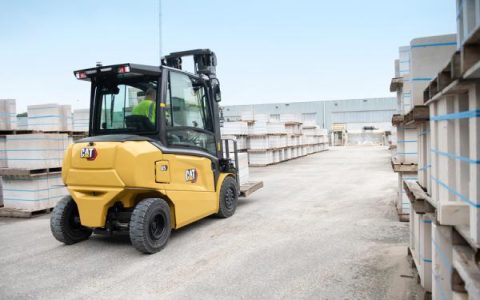Precision trucks represent specialized heavy-duty vehicles engineered for exacting operational requirements where standard tolerances are insufficient. These vehicles prioritize exceptional accuracy in positioning, stability, load handling, and maneuverability within demanding environments like manufacturing plants, logistics hubs, ports, and complex construction sites.
Defining Characteristics
Key attributes distinguish precision trucks:
- Ultra-Precise Positioning: Employing advanced systems like RTK-GNSS, LiDAR SLAM, or high-accuracy encoder-based dead reckoning for centimeter-level location accuracy.
- Enhanced Structural Rigidity: Frames and chassis designed with meticulous attention to torsional stiffness to minimize deflection under dynamic loads or uneven terrain, ensuring predictable movement.
- Sophisticated Suspension & Steering: Adaptive suspensions maintain consistent ride height and stability; high-specification steering mechanisms (often all-wheel steer, crab steering) offer unparalleled maneuverability control.
- Superior Load Handling Accuracy: Integrated lifting systems (forks, cranes) with fine control, anti-sway technology, and precise hydraulic feedback enabling millimeter-level placement.
- Strict Manufacturing Tolerances: Components assembled under rigorous quality control to ensure consistent performance and minimal operational variance.
- Advanced Control Systems: Integrated electronic control modules managing drivetrain, hydraulics, and stability systems for synchronized, predictable operation; often featuring programmable automation functions.
Key Application Areas
Precision trucks are vital where standard equipment fails:

- High-Value Cargo Handling: Transporting aerospace components, semiconductor manufacturing equipment, or delicate machinery requiring vibration mitigation and exact positioning.
- Tight-Space Logistics: Maneuvering within narrow warehouse aisles, confined ship holds, or congested factory floors necessitates their compact dimensions and agile steering capabilities.
- Heavy & Oversized Loads: Moving multi-ton components for wind turbine assembly or industrial plant construction demands the combined power, stability, and placement accuracy these trucks provide.
- Specialized Industrial Processes: Integration into automated guided vehicle (AGV) fleets for just-in-time material delivery in automotive or electronics assembly lines.
- Sensitive Site Operations: Working near critical infrastructure where collision avoidance and millimeter control are paramount.
Operational Considerations
Implementing precision trucks requires careful attention:
- Operator Skill: Demands highly trained operators familiar with advanced control interfaces and the nuances of precision maneuvering.
- Maintenance Rigor: Requires meticulous preventive maintenance and calibration schedules by specialized technicians to preserve accuracy and reliability. Sensor systems (LiDAR, cameras) need regular checks.
- Site Preparation: Optimal performance often relies on suitable operating surfaces (flatness, traction) and may require infrastructure like reflective targets or UWB anchors for positioning systems.
- Cost-Benefit Analysis: Higher initial acquisition and operating costs compared to standard trucks must be justified by the critical need for precision and reduced risk of damage.
Leading manufacturers focus on continuous innovation in drivetrain efficiency (electric/hybrid), sensor fusion for enhanced perception, and sophisticated software for predictive analytics and telematics, further elevating the capabilities of these critical industrial assets.








